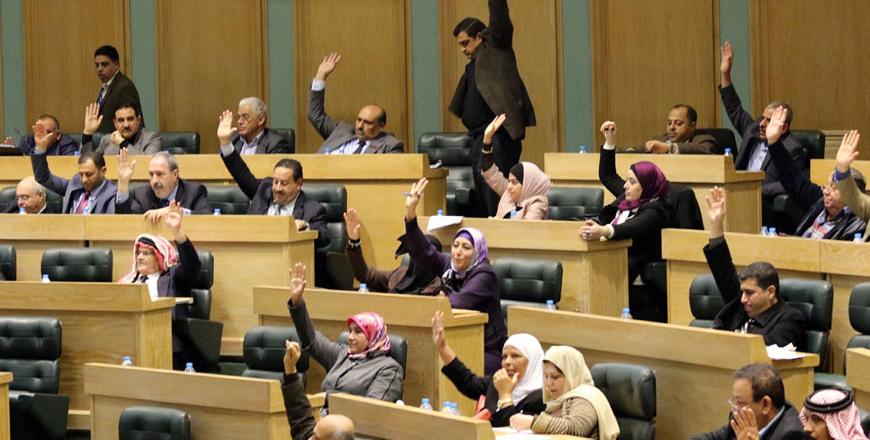You are here
Elections bill ‘the best formula when all factors taken into consideration’
By Dana Al Emam - Sep 18,2015 - Last updated at Sep 18,2015
AMMAN — The 2015 parliamentary elections bill, currently under deliberation at the House, proposes the most suitable election system to Jordan at this phase of the country’s history, a senior government official said Thursday.
In a discussion over the draft law at Al Rai Studies Centre, Minister of Political and Parliamentary Affairs Khaled Kalaldeh said the ultimate ambition, as far as he is concerned, is to have the entire Kingdom as one constituency with closed proportional lists, but taking all considerations into account, the bill at hand is the best formula.
Kalaldeh explained that the bill took into consideration international standards regarding the number of Parliament seats, which include factors related to the level of development in districts, geography and demographics.
Coalitions should be formed on the basis of political and social understandings, he said, noting that the bill does not ban or hinder the formation of party coalitions, in an apparent response to reservations made by political party leaders, who have argued that the law does not encourage partisan action.
This draft law, he said, seeks to achieve more equality when it comes to the number of votes for each seat, adding that seats allocated for Christians, Circassians and women’s quota were not affected by decreasing the number of Lower House seats from 150 to 130.
In fact, women’s quota may give more women a better representation chance, as they may win seats outside the quota as well as through the quota (15 per cent for women who receive the highest percentage of votes in their governorates, not constituencies).
Commenting on the process of registration for voting, the minister said there will be no voter cards noting that the best method for registration is to be according to the residence, not the area of origin.
The minister said it is not correct that a law governs the distribution of electoral constituencies, adding that such details must be included in a by-law that the government enacts once the bill is endorsed.
A number of Lower House members and politicians across the political spectrum participated in the session.
Political analyst and former MP Hamada Faraaneh said the national-list system, which the proposed bill replaced with a multi member list system, has encouraged candidates from several backgrounds to form lists, therefore the draft law should have built on that.
Meanwhile, MP Mohammad Qatatsheh said the bill minimises the effect of “political money” and encourages the representation of middle and lower classes.
For her part, former MP Abla Abu Olbeh, secretary general of the Jordanian Democratic People’s Party (Hashed), commended the expansion of electoral circles, suggesting multimember lists to be closed instead of open.
Abdul Majeed Thneibat, the overall leader of the Muslim Brotherhood Society, said the majority of national forces “welcomed” the bill, adding that the bill “leaves no pretext for boycotting” the upcoming parliamentary elections.
Related Articles
AMMAN — The Lower House on Tuesday passed the draft 2015 parliamentary elections law with minor changes following six marathon sessions that
AMMAN — The Lower House on Monday approved 46 out of the 68 articles of the draft elections law, including a provision stipulating the open
AMMAN — The draft electoral constituency by-law, which is expected to be finalised this week, seeks to improve the electoral process and enh


















